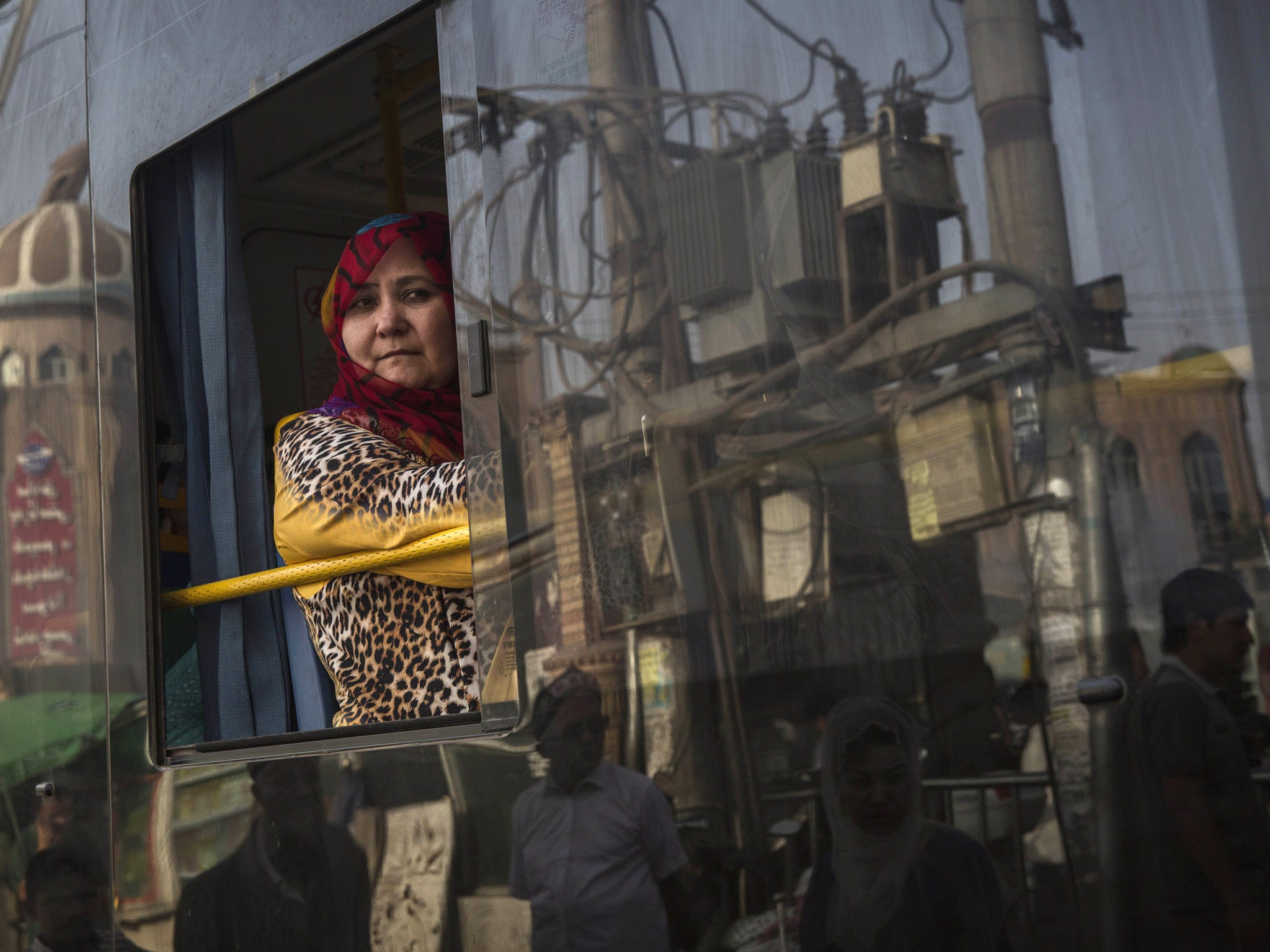Chinese city bans people with Islamic clothing and ‘big beards’ from using buses
The measures in Xinjiang province come after hundreds of deaths due to ongoing unrest, which Chinese officials blame on Muslim separatists

Your support helps us to tell the story
From reproductive rights to climate change to Big Tech, The Independent is on the ground when the story is developing. Whether it's investigating the financials of Elon Musk's pro-Trump PAC or producing our latest documentary, 'The A Word', which shines a light on the American women fighting for reproductive rights, we know how important it is to parse out the facts from the messaging.
At such a critical moment in US history, we need reporters on the ground. Your donation allows us to keep sending journalists to speak to both sides of the story.
The Independent is trusted by Americans across the entire political spectrum. And unlike many other quality news outlets, we choose not to lock Americans out of our reporting and analysis with paywalls. We believe quality journalism should be available to everyone, paid for by those who can afford it.
Your support makes all the difference.A Chinese city has banned people with Islamic clothing or big beards from boarding buses, in what has been criticised as “an openly racist and discriminatory policy”.
The measures have been brought in across the north-western city of Karamay in the Xinjiang province, where hundreds have died in unrest over the past 18 months.
According to Chinese state media reports, officials intend to use the rules to help “strengthen security” ahead of and during a major athletics event scheduled for the 20 August.
Authorities said the ban will apply to five “types” of passengers: those who wear veils, head scarves, a loose-fitting garment called a jilbab, clothing with the crescent moon and star, and those with long beards.
The crescent moon and star are used by groups that China says want to set up an independent state in north-west China called East Turkestan, while bus bombings have been a longstanding concern in the region.

In July, authorities in Xinjiang's capital Urumqi banned all bus passengers from carrying items ranging from cigarette lighters to yogurt and water, in a bid to prevent violent attacks.
Around 45 per cent of the population of Xinjiang is Muslim, and the Turkic-speaking Uighur minority say that the government's repressive policies and controls on Islam are to blame for provoking the unrest.
At the start of July, schools and government departments in the province caused controversy by banning students and civil servants from fasting for the holy month of Ramadan.

Speaking about the latest bans, Alim Seytoff, the president of the Washington-based Uyghur American Association, said: “Officials in Karamay city are endorsing an openly racist and discriminatory policy aimed at ordinary Uighur people.”
Despite the high number of deaths in recent months in Xinjiang, tight security makes it almost impossible for journalists to make independent assessments of the violence.
About 100 people were killed when knife-wielding attackers staged assaults in two towns in the region's south in late July, state media said, including 59 “terrorists” shot dead by police. A suicide bombing killed 39 people at a market in Urumqi in May.
Join our commenting forum
Join thought-provoking conversations, follow other Independent readers and see their replies
Comments